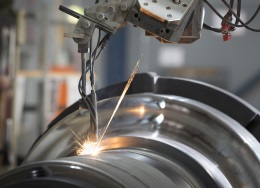27 March 2019
 The 2018 Excellence in Research Australia (ERA) results assessed UniSA across 39 detailed fields of research and rated all at or above world standard.
The 2018 Excellence in Research Australia (ERA) results assessed UniSA across 39 detailed fields of research and rated all at or above world standard.
The results, released today, confirm UniSA has strengthened its research quality and impact and made strong improvements in key areas important to the development of South Australia into the future.
Across the entire 2018 ERA assessment UniSA has 20 fields of research rated at ‘well above world standard’, two more than in ERA 2015.
UniSA Vice Chancellor Professor David Lloyd says the results of the 2018 ERA report reflect UniSA’s enduring and foundational commitment to quality research that counts.
“These ERA results show that UniSA has both depth and breadth in its research base and a strong commitment to undertaking research that will make a difference in the world - help to transform industries, build stronger communities, and tackle long-standing challenges such as cancer and new, but equally difficult problems, such as mitigating and adapting to climate change,” Prof Lloyd says.
“Our approach to research is to work in partnership with industry, business and government – so our research is very clearly directed at finding solutions and delivering tangible outcomes for the community.”
And UniSA research across six fields of engineering, in mathematical sciences and in environmental science and management was assessed as well above world standard at level 5 (the highest ERA measure), reflecting the University’s strong focus on transforming industries and societies through innovation in technology, mechatronics, minerals resources, environmental remediation, materials science, energy solutions, and advanced manufacturing.
“The story around engineering at UniSA is especially important as research quality in this area has increased in every ERA assessment period and is feeding into a high demand for innovation in engineering as South Australia grows its defence and space industry sectors and its contribution to a brighter outlook for the environment,” Prof Lloyd says.
In health – nursing, pharmacology and pharmaceutical sciences, human movement and sports science, nutrition and dietetics, biochemistry and cell biology, medical physiology as well as psychology, UniSA also rated well above world class, at level 5.
Overall, based upon the ERA 2018 four-digit field of research assessment, 100 per cent of UniSA’s research is rated world‐class or above.
Prof Lloyd says longer term, it is the impact of this excellent research and UniSA’s keen institutional focus on key challenges in society, that returns so much to the community.
“Ongoing projects, such as the relationship UniSA has developed with the Department of Veteran’s Affairs over the past 15 years, looking at the quality use of medicines for older Australians, are reaping rewards not only in delivering better health outcomes for our aging population, but also in saving health dollars across the system,” Prof Lloyd says.
“What began as a discrete research project in 2004 has grown into a consortium led by UniSA - Veterans’ Medication Advice and Therapeutic Education Service (MATES) – which is delivering data -driven, best-practice advice to about 33,000 GPs Australia-wide and supporting more than 300,000 veterans to receive the best possible information on medications and their use.
“This kind of impactful, industry and community-integrated research is something UniSA is known for and we are striving to become even more engaged with industry, business and government as enterprising partners, focussed on making a tangible difference by delivering purposeful, high-impact, world-class research.”
UniSA media contact: Michèle Nardelli mobile +61 418 823 673 or +61 882960854 email michele.nardelli@unisa.edu.au



